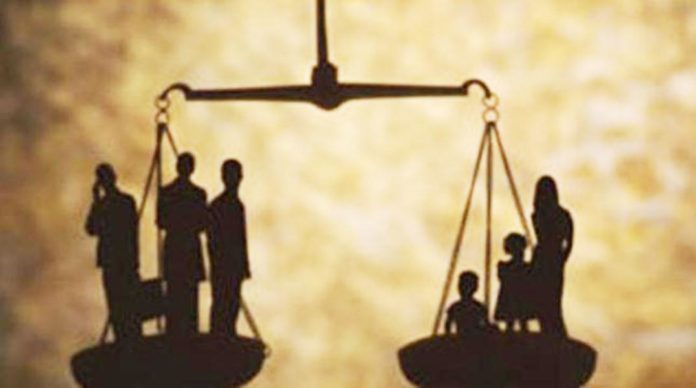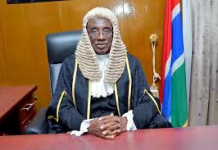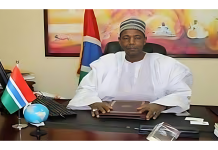By Yankuba Jallow/Mustapha Jallow
The Gambia Court of Appeal has passed a unanimous judgement that held the National Intelligence Agency (NIA), for violating the fundamental Constitutional rights of Mr. Momodou Sowe.
In this case, the NIA which is now the State Intelligence Services (SIS), the Director of Prisons Services and The Attorney General, were the Respondent whilst Momodou Sowe, was the Appellant.
The Court of Appeal in a unanimous judgement to the appeal case before it, held that the High Court was wrong to have dismissed the whole application that was brought before it. The Judges of the Court of Appeal in their judgement declared that the fundamental Constitutional rights of Mr. Sowe and more particularly Section 19 and 24 of the 1997 Constitution, have been infringed by his unlawful detention.
The Court held that the said arrest and detention without being charged before any Court of Law, violated the right of fair hearing and the presumption of innocence until proven guilty, as stated under Section 24 of the Constitution and Section 14 of the Criminal Procedure Code.
Mr. Sowe according to evidence, was detained on Tuesday 20th November 2012, to Tuesday 27thNovember 2012, when he was granted bail. On reporting to the NIA on the 3rd day of December 2012, he never went back home. He was subsequently transferred to Mile II and detained without any trial and was released on the 21st January 2015.
On Ground One of the appeal, the appellant sought a declaration that his prolonged incommunicado detention at Mile II since 22nd November 2012, is arbitrary and unlawful.
On Ground Two of the appeal, the appellant sought for a declaration that his fundamental Constitution rights particularly Section 19 and 24 of the Constitution, have been infringed by his detention. On Ground Three and the final ground of appeal, the appellant sought for an order for his unconditional release from Mile II.
The High Court Judge in her ruling, dismissed the application for being overtaken by events and held that if the application was granted, it would amount to merely granting an order in vain.
For their holding, the Court of Appeal judges held that the trial judge of the High Court was not wrong to have dismissed the first and third grounds of appeal on basis that the appellant has been released. They affirmed the decision of the High Court on these Grounds that the Counsel for the appellant should not be aggrieved by the findings of the Learned Trial Judge, that the application before her was superfluous and unwarranted on the simple reason that, it had been overtaken by events.
The Court of Appeal affirmed the position of the High Court that to the effect that Courts of Law do not act in vain and can only make enforceable orders, was justifiable under the circumstances.
In addition, the judges of the Appellate Court held that the High Court could not grant for instances of Ground Three, for the unconditional release of the appellant when he was no longer under detention. They held that neither could the Court make a declaration as prayed in Ground One of the appeal, because the appellant was released without the time frame of his detention.
On their holding of Ground Two of the appeal, the Judges of the Appellate Court held that the fundamental rights of Mr. Sowe were infringed. The Court made no order to cost.






















